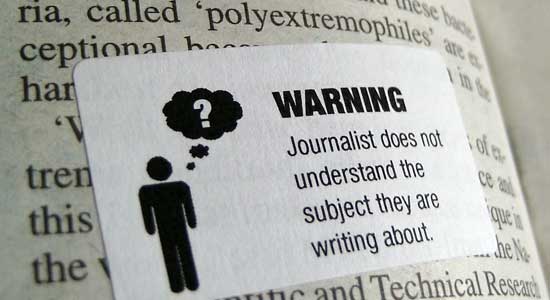Taking stock of media reforms and media ethics in Zimbabwe
Thursday, September 20th, 2012 by Lenard KamwendoThe growing media polarization between “pro-MDC” and “pro-ZANU-PF” camps has reached a toxic level as it is now difficult to distinguish journalists from political activists. The prevailing political situation in Zimbabwe has exacerbated the rivalry and the media is being used for political ends.
The Annual Media Stakeholders’ Conference 2012 was held in Harare yesterday at a time when the country is at a deadlock over the new constitution and the increasing uncertainty of whether there is going to be any constitution at all. The conference, which was hosted by the Media Alliance of Zimbabwe (MAZ), brought together media practitioners and members of civil society from across the nation to take stock of media reforms, which have taken place so far under the coalition government operating the Global Peace Agreement (GPA). Article 19 of the GPA refers to a free and diverse media environment but not much has been done to address this as many journalists and media practitioners have been arrested and charged under Access Access to Information and Protection of Privacy Act (AIPPA).
According to a presentation by Andy Moyes of Media and Monitoring Project of Zimbabwe (MMPZ) the government has established the Zimbabwe Media Commission and since the establishment of the Commission the number of registered media organizations has risen to 65. However it should be noted that the Commission is still a government-controlled body as it still operates under the provisions of Access to Information and Protection of Privacy Act (AIPPA). The Zimbabwe Media Commission has recently come under attack from some sections of the media who view its establishment as an attempt to stifle media plurality, expression and press freedom. The same Commission has been criticized for lack of transparency in the awarding of licenses, which has resulted in a number of private radio stations crying foul. In what can be viewed as a deliberate move to stall reforms before elections no community radio station has been granted a license to operate to date.
Multiplicity does not necessarily mean the licensing of two radio stations can evidence diversity in content. The two stations, which came into operation recently after being granted commercial broadcasting licenses. One of the two radio station Star FM comes from a state run media house and the other one Zi FM is operated by a former Zimbabwe Broadcasting Corporation news anchor who has denied strong links to the former ruling party ZANU PF.
The continued use of hate language, fabrication of stories, biased reporting and publication of highly opinionated stories is another sign of the high level of unethical practices which some journalists and media houses practice. To some extent the increased invasion of privacy especially by state media related to the Prime Minister’s private life has left many wondering if there are still any ethics being practiced in the media profession. The standard of journalism in Zimbabwe has deteriorated to that extent that the content being produced is now regarded as being unreliable.










